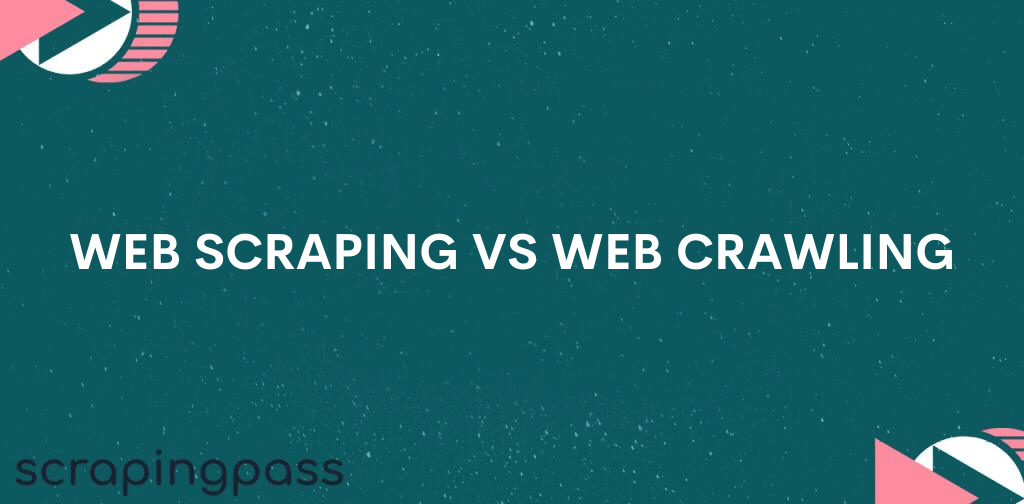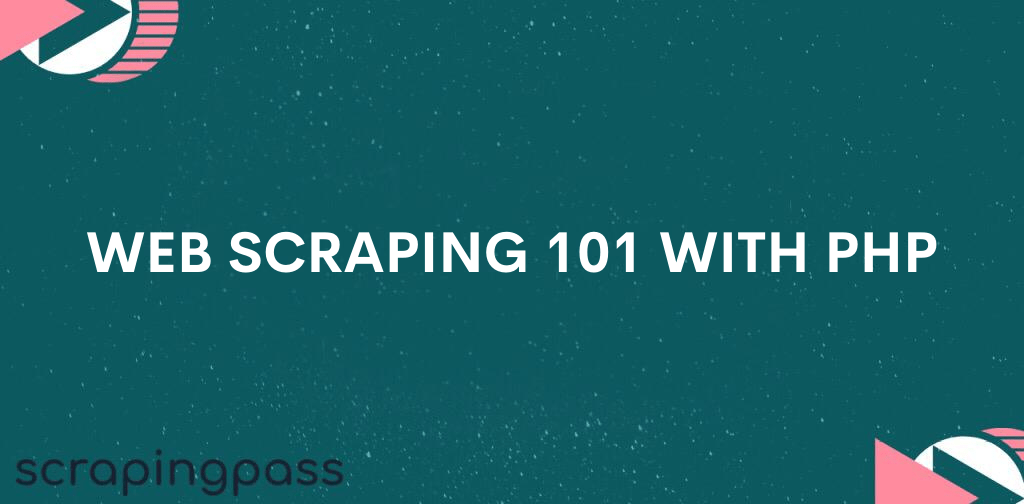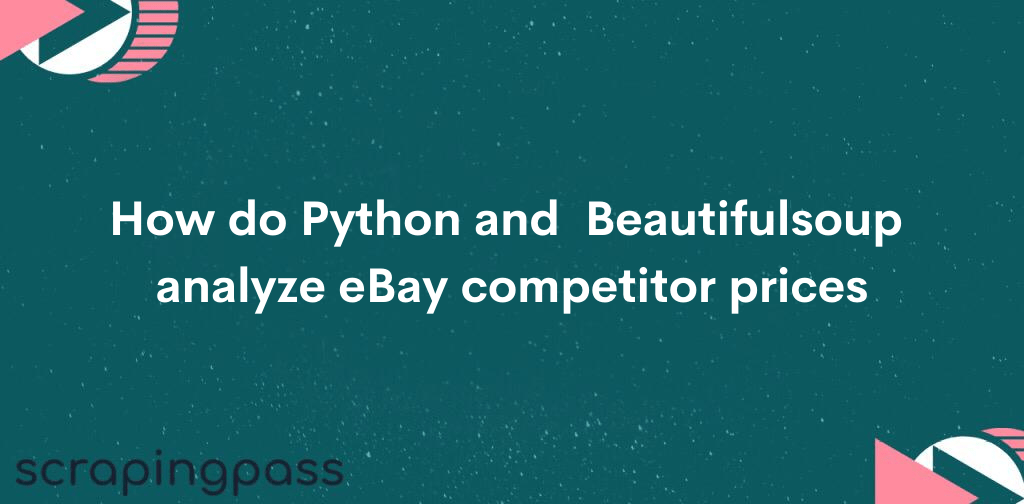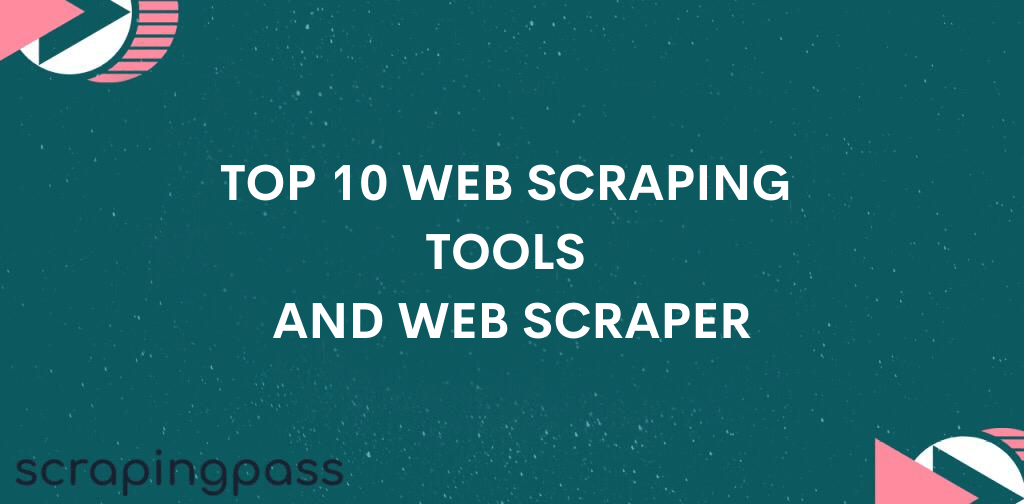Web Scraping vs Web Crawling
Introduction
There are some ways that companies and individuals can gather information about their customers and web crawling and web scraping are a number of the foremost common approaches. You’ll hear these terms used interchangeably, but they’re not an equivalent thing.
In this article, we’ll re-evaluate the differences between web scraping and web crawling and the way they relate to each other. we’ll also cover some use cases for both approaches and tools you’ll use.
What is web scraping?
A basic explanation of web scraping is that it refers to extracting data from an internet site. Any relevant data is then collected and exported to a special format. Some users will put the scraped information into a spreadsheet, a database, or do further processing with an API.
Web scraping isn’t an easy task. the power to scrape an internet site for user data is very hooked into the form of the content on an internet site. If there are JavaScript rendered pages, images, or other formats on the location, it’ll be more complex to urge the info from them. The opposite challenge is that websites are often updated, and your scraper will break.
Approaches to web scraping
There are different methods you’ll use to approach web scraping. you’ll start web scraping manually if you’re trying to find a little amount of data from a couple of URLs. this suggests you’ll undergo each page and obtain the info you are looking for. this might be price information from a specific website or finding addresses from a web directory.
You also have the choice of using automated web scrapers. There are a variety of web scraping tools available. Here’s a brief list, but there are more included within the link:
- Octoparse
- Scrapy
- ParseHub
- FMiner
You can also create your own custom automated web scrapers if you’ve got some programming knowledge. This may offer you more control over what data you extract from websites, but it can take a substantial amount of your time.
Web scrapers offer you the power to automate data extraction from multiple websites simultaneously. As long as you’ve got an inventory of internet sites that you simply want to scrape for data and you recognize the info you’re trying to find, this is often a useful data collection tool. you will be ready to gather information from multiple sources accurately and quickly.
How web scrapers work
The way web scrapers work is by taking an inventory of URLs and loading all of the HTML code for the online pages. If you’re employing a more advanced scraper, it’ll render a whole website including the CSS and JavaScript on the pages. Then the scraper will gather all of the info on the page or a selected sort of data you’ve defined. If you would like your scraper to figure quickly and efficiently, defining the info you are looking for before starting the online scraping process is going to be the simplest approach. For instance, if you recognize you would like to urge pricing data for a selected product on Amazon and you do not want the reviews, defining that beforehand will save tons of your time and resources.
Once the online scraper has all of the info that you simply want to gather, it’ll put that data into a format that you simply choose. Most users output data into a CSV file or an Excel spreadsheet. Others offer you more advanced options, like returning a JSON object which may be utilized in an API that involves further processing.
Examples for web scraping
Most of the utilization cases for web scraping are during a business context. a corporation might want to see what products its competitors are selling and therefore the prices they’re selling them at. they could also want to see websites for any mentions of them or to seek out data that will help with their SEO strategy.
Here are a couple of samples of how businesses use web scraping:
- News aggregation to see for company mentions across multiple platforms
- E-commerce monitoring to ascertain how competitors do
- Hotel and flight comparators to ascertain how market prices are fluctuating
- Market research for brand spanking new products
- Lead generation by gathering user information
- Bank account aggregation, like websites like plaid.com or Mint.com
- Data journalism to inform stories through infographics
What is web crawling
Web crawling is the process of indexing content from everywhere on the web. It’s like if someone went through an outsized music collection and arranged it alphabetically in order that people can find the songs they need. That way they will find the precise song they’re trying to find at any time. Web crawlers take a jumbled mixture of information and organize it.
You’ll also hear web crawlers mentioned as web spiders or spider bots. you would possibly not know all of the pages that an internet site has available until you employ a bot. this is often how you’ll discover new information exists on a site. They allow you to know what content is out there and where it’s located, but they do not actually gather information for you.
This is the way search engines like Google work. They use an internet crawling bot to follow links and type through information. Web crawlers work by browsing an internet site’s sitemap to get what information a website contains or starting at an initial page and finding other pages linked thereto.
How web crawlers work
To start, web crawlers need an initial start line which is usually a link to the page on a selected website. Once it’s that initial link, it’ll start browsing the other links thereon page. Because it goes through different links, it’ll create its own map once it understands the sort of content on each page.
Site maps also are an excellent start line for web crawlers. It gives them how to ascertain exactly how a website’s content is organized and its internal linking strategy. this is often an especially powerful start line for giant websites, sites with pages that are not well linked to every other, new sites that have few external links, or sites that have tons of rich media link images or videos.
Most sites attempt to optimize their crawlability for SEO purposes. If the content of an internet site is definitely discoverable by web crawlers, they’re likely to rank higher in program results because the content they need is simpler to seek out. There are a couple of ways in which web crawling is often performed.
Web crawling is often done manually by browsing all of the links on multiple websites and taking notes about which pages contain information relevant to your search. It’s more common to use an automatic tool to try to do this though.
Web crawling tools
You can find options for both free and paid web crawling tools and if you’ve got some programming skills, you’ll even make your own web crawler. Here are a couple of some commonly used automated web crawling tools.
- Scrapy is often also an internet scraping tool mentioned within the previous
- Apache Nutch
- Storm Crawler
- Screaming Frog
These tools allow you to automate your web crawling activities, allowing you to scan thousands of internet sites for content that will be useful to you. they are going deeper into an internet site than a manual scan would allow because they find links and pages which may not be listed in easily accessible areas of a site.
While Python is that the standard language that wants to build web crawlers, you’ll also use other languages like JavaScript or Java to write down your own custom web crawler. Now that you simply are conversant in a number of the tools you’ll use to crawl websites, let’s re-evaluate a couple of use cases.
Examples for web crawling
The most common use of web crawlers is for search engines, like Google, Bing, or DuckDuckGo, to seek out and index information for users to look through. an inquiry engine like Google will use web crawlers to index sites supporting the content they need available for bots to see through. Once they find websites that contain information relevant to a specific subject, the bot will make a note of that site and provide it a ranking during a user’s search results accordingly.
There are many other reasons you’d want to use an internet crawler. Here are a couple of examples.
- SEO analytics tools that marketers use for researching keywords and finding competitors, like Ahrefs or Moz
- On-page SEO analysis to seek out common errors on websites, like pages that return 404 or 500 errors
- Price monitoring tools to seek out product pages
- Do collaborative research in academia with a tool like Common Crawl
Final thoughts
A big reason for the confusion between web scraping and web crawling is that they’re commonly done together. Typically when a business is trying to collect information from other websites, they’ll want to crawl the pages and extract information from the content of the pages as they are going.







Abhishek Kumar
More posts by Abhishek Kumar